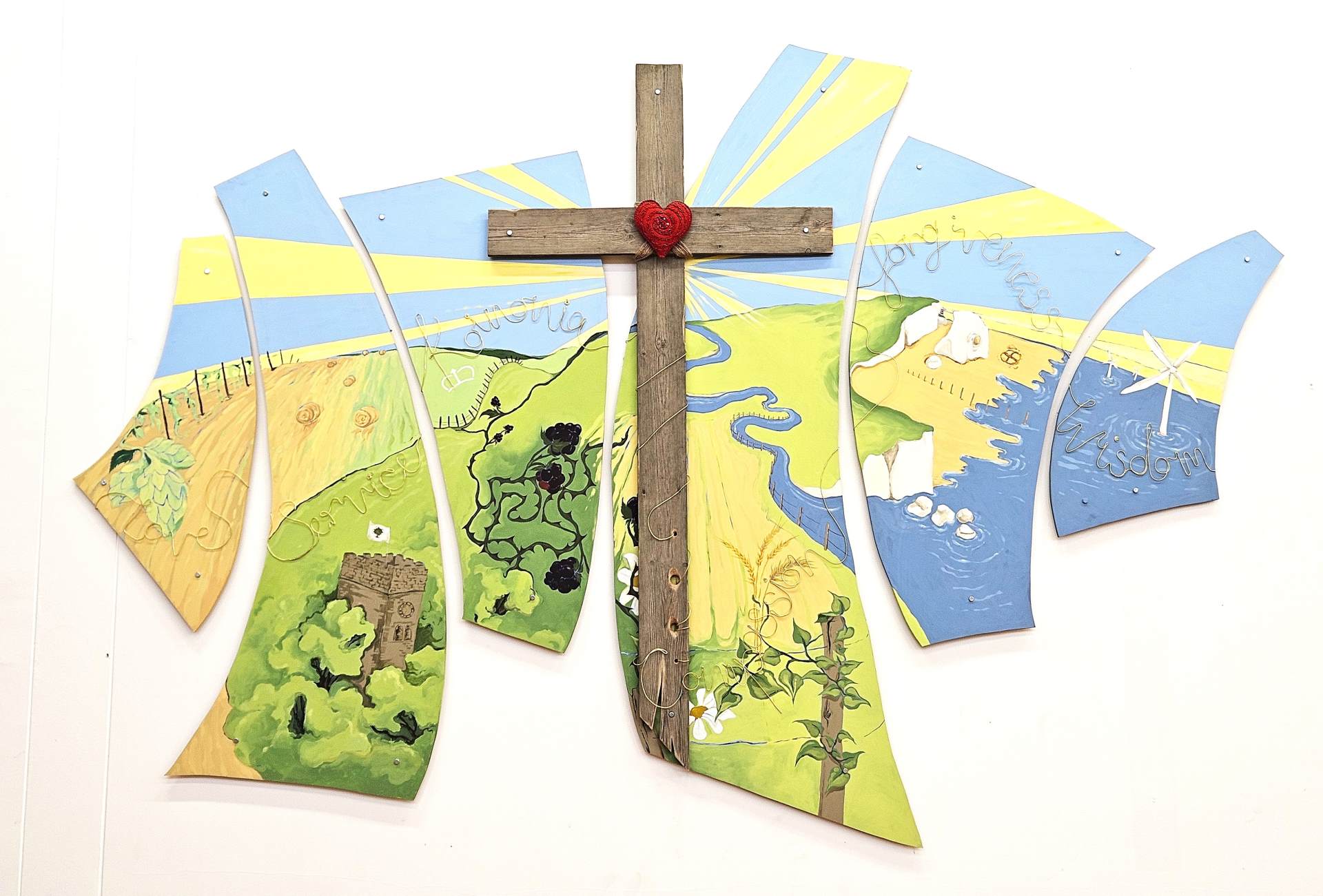Vision & Values

Flourishing in F.A.I.T.H. (Family, All Included, Thriving & Healthy)
At The John Wesley Church of England & Methodist Primary School, our children & families are at the centre of everything we do. In our inclusive & unique learning community with two distinctive Christian Foundations, every experience enables all to flourish as individuals so we thrive together as God intended. We are blessed with beautiful outdoor & indoor spaces which we use fully to play and learn, nurturing one another mentally, physically, emotionally, academically and spiritually. We strive for our school community to keep being compassionate, loving, kind, responsible citizens who act wisely and keep giving.

Our vision and associated values are theologically centred on the Bible narrative ‘The Good Samaritan’ (Luke 10:25-37), particularly love your neighbour as you love yourself. Our chosen story inspires our children and staff to flourish and thrive in life and their learning at The John Wesley Church of England & Methodist Primary School (JWS).
Our vision and values are interwoven through all aspects of school life. Our curriculum, worship, ethos and pastoral care contributes to the spiritual development of pupils and adults at The John Wesley CEM Primary School and is provided by offering ‘windows, mirrors and doors’ for our relationships with self, others, the world and the divine.
We are proud of our Christian distinctiveness and believe that through living out our school vision and values, children will thrive as God intended. Flourishing in F.A.I.T.H encompasses all of our being, including our material, physiological, spiritual and emotional aspects. We flourish when we help others flourish, as the ‘Good Samaritan’ flourished when he helped the stranger. Our mental, physical, emotional and spiritual development and well-being is paramount in all that we do at JWS.
In our diverse community, our strong distinctively Christian Church of England and Methodist foundation fosters a caring and inclusive approach for families of all faiths and none, treating each child and their family with care, dignity and respect as individuals, bringing fullness of life and hope for the future. Within the context of Christian belief and practice, every child in our school is nurtured within the love of God to feel safe and valued. As a community, we learn to live and show that we ‘Love our neighbours as we love ourselves’. We do all ‘the good we can’ by putting the children and families at the centre of all that we do and the decisions we make to create an inclusive, caring environment, with a family feel amongst our community, building links with the families in our local area because a strong sense of belonging, for everyone who joins our school community, is important to us.
We encourage everyone to develop a love of learning and make a positive contribution to all aspects of school life. We have high aspirations for all children and an expectation that they will excel and achieve their potential. We understand that every child is precious, blessed with their own unique set of gifts and talents. With this in mind, our staff work to develop the whole child as they discover where their strengths and interests lie.

We aim to foster each child’s growing perception of the world, encouraging self-control, self-respect, emotional and spiritual growth that, in turn, helps pupils to recognise that other people are unique, special and of equal value to themselves and to God. Relationships throughout the school are open and consistent, encouraging confidence in pupils combined with mutual respect. The pupils are encouraged to develop their own personal values as well as developing quality relationships so that pupils feel free to express and explore their views openly and honestly. Pupils are encouraged to ask questions, at the same time acquiring knowledge and skills which help to develop understanding of spiritual, moral, cultural and social issues. Throughout, our school encourages and promotes an ethos that extends to all, being friendly towards each other, combined with a mutual respect built on a combination of our Christian values of love, forgiveness, compassion, wisdom, service and koinonia.


Jesus told the story of ‘The Good Samaritan’ to demonstrate his love of the individual despite their backgrounds or lifestyles. The Samaritan shows the stranger sacrificial love thinking not of himself but of another. He shows the values of respect bringing dignity and making a difference to the life of the individual. We are called to respect ourselves and others showing a deep admiration by our loving and thoughtful attitude to those around us because of their importance to God. Jesus then sets a challenge: ‘You go then and do the same’ thus instructing us to make a difference. In our daily lives this can be lived out through our attitude, behaviour and actions towards others. We model this as staff and in our behaviour policy, working on rebuilding broken relationships and forgiveness with each day being a fresh start. Also in the story, Jesus talks about the compassion shown to the man in need. Jesus tells us to go and have the same compassion as the Samaritan showed. We believe that in this way we can all have a positive impact on others and the world around us. The Samaritan gave what he could to help the wounded man. He first took care of him himself, and then, when he had to leave, he paid an innkeeper to nurse the man back to health. In the parable, Jesus illustrated the two forms of Christian service: first, assistance provided personally and directly to another; second, giving support indirectly by donating one’s own property to those who have the time and skills to help to those in need. We are teaching children that however old they may be, they can have a positive impact on those around them and the wider world. Social Action and service to others is demonstrated through various voluntary projects and raising money for charity in our school. The Samaritan demonstrates he has great wisdom because he treats the man injured on the street as he would want to be treated despite the fact he was considered an enemy. At that time, the Samaritans were despised by the Jewish people, the story would have been shocking to the first listeners. Koinonia expresses the quality of relationship within our Christian community. It is based on fellowship with Jesus. Through him, Christians share the relationship that Jesus has with God. A central element of being a family is interdependence: all are needed and valued and each person is important to the whole. Koinonia is exemplified through ‘The Good Samaritan’ story because the Samaritan created a community by including the stranger and supporting him to get better. Each member of the body shares the joys and sufferings of the others and each depends upon everyone else.
Our Bible Story
//www.youtube.com/embed/ZmDc3rPJRiU#t=0.5




